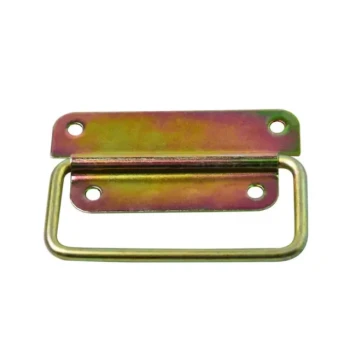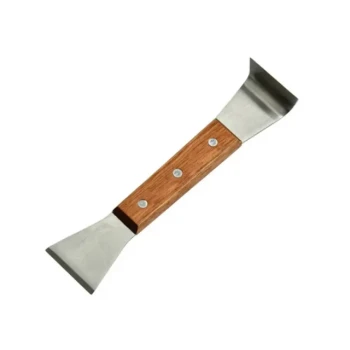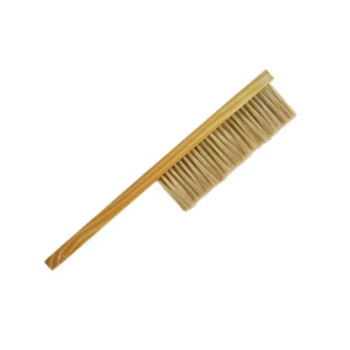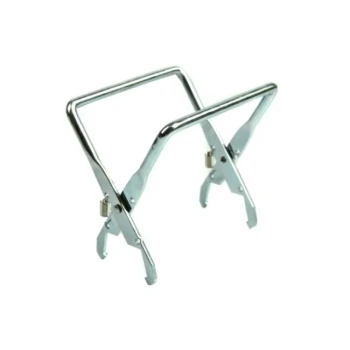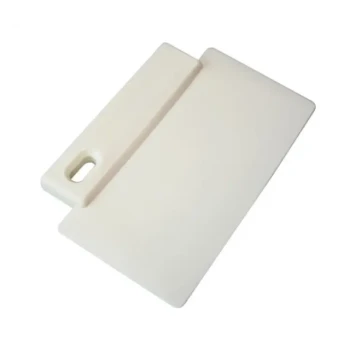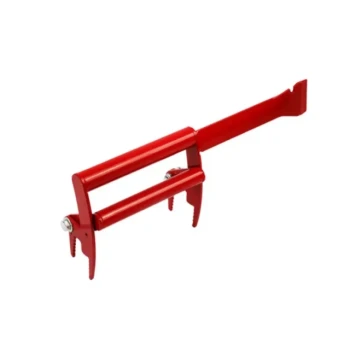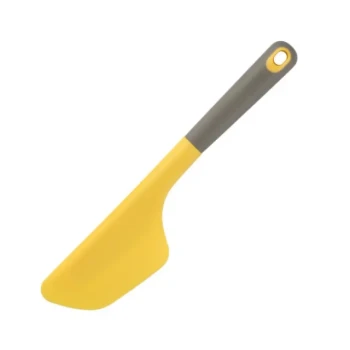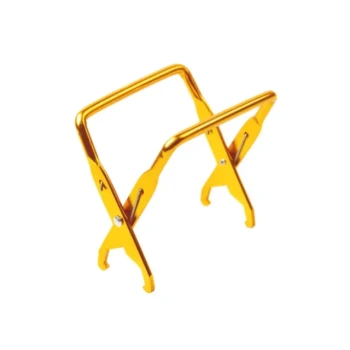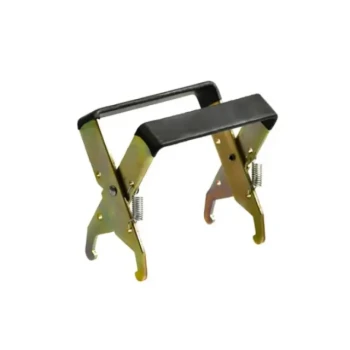Ultimately, plastic foundation is a tool of convenience for the beekeeper, not a direct benefit for the bees. While bees can and will build comb on it, especially when well-coated with beeswax, they accept and draw out natural beeswax foundation much faster. The choice between them hinges on whether you prioritize operational efficiency or the bees' natural tendencies.
The core decision is a trade-off: plastic foundation offers durability, longevity, and pest resistance for the beekeeper, while pure beeswax foundation offers faster colony acceptance and a more natural environment for the bees.
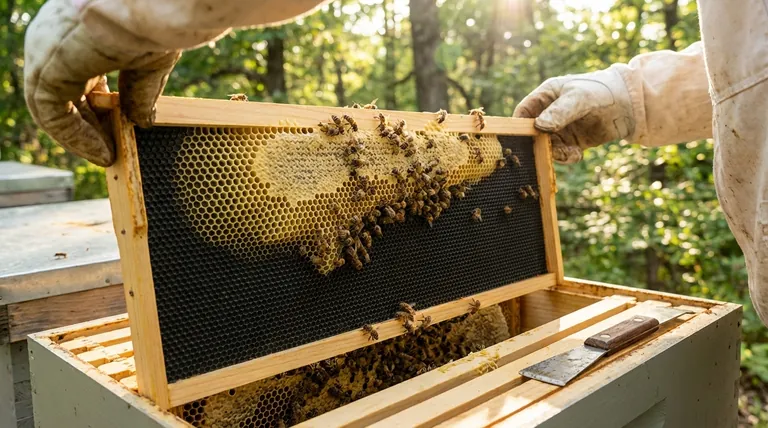
The Core Conflict: Beekeeper Convenience vs. Bee Preference
The debate between plastic and wax foundation is not about which one is universally "better," but about whose needs are being prioritized in a given moment—the beekeeper's or the colony's.
Why Beekeepers Choose Plastic: Durability and Longevity
The primary advantages of plastic foundation are for the person managing the hive. It is exceptionally durable and far less fragile than sheets of pure beeswax.
This rigidity prevents frames from "blowing out" or falling apart in a honey extractor. Plastic is also reusable for many seasons, making it a cost-effective choice in the long run.
Furthermore, it is resistant to damage from pests like wax moths and mice, and it can be stored in any temperature without degrading.
Why Bees Hesitate with Plastic
Bees are genetically programmed to build their home from wax they produce themselves. Plastic is a foreign material they do not instinctively recognize as a building surface.
Because of this, colonies are often slower to draw comb on plastic foundation. In some cases, if the initial wax coating is thin, the bees may chew it off and refuse to build on the bare plastic underneath.
The Role of Wax Coating: A Necessary Compromise
To bridge the gap between the durability of plastic and the preference of bees, most plastic foundation is coated in beeswax. The quality of this coating is critical.
The Importance of a Good Wax Coat
Plain, uncoated plastic foundation is rarely successful. A layer of beeswax is essential to entice the bees to begin working.
Many beekeepers find that the thin, factory-applied wax layer on commercial plastic foundation is insufficient. For best results, it's often necessary to apply an additional, thicker layer of melted beeswax.
Pre-Coated vs. DIY Application
You can purchase plastic foundation with a pre-applied layer of wax, which is the easiest option for installation.
However, applying your own wax with a roller or brush ensures a thick, fresh coat that dramatically increases the likelihood of the bees accepting and quickly drawing out the comb.
Understanding the Trade-offs
Choosing a foundation type involves balancing practical benefits against potential drawbacks. There is no single perfect solution for every beekeeper.
The Benefit of Structural Integrity
Plastic foundation provides a rigid and reliable structure. Frames are less likely to sag in high heat or break during hive inspections, which is a significant advantage for hive management.
The Cost Factor: Upfront vs. Long-Term
Beeswax foundation is typically cheaper per sheet, but it is fragile and has a shorter lifespan. Plastic foundation has a higher upfront cost but can be reused for years, making it more economical over time.
The "Natural Beekeeping" Perspective
A significant consideration for many is the introduction of plastic into the hive. While direct harm to bees from the plastic itself is not well-documented, it represents a move away from a completely natural hive environment. Beekeepers who prioritize mimicking the bees' natural world will almost always choose pure beeswax.
Making the Right Choice for Your Apiary
Your decision should align with your specific goals for beekeeping, whether they are focused on production scale, natural practices, or ease of management.
- If your primary focus is operational efficiency and long-term cost: Wax-coated plastic foundation is a durable and reliable choice that stands up to extraction and pests.
- If your primary focus is encouraging rapid colony growth and a more natural hive: Pure beeswax foundation is the superior option, as bees will accept it and draw comb more quickly.
- If you are a new beekeeper and want a balanced approach: Consider using strong plastic foundation in the brood chambers and faster-to-draw beeswax foundation in the honey supers.
Your choice of foundation is a direct reflection of your beekeeping philosophy and management priorities.
Summary Table:
| Aspect | Plastic Foundation | Beeswax Foundation |
|---|---|---|
| Primary Beneficiary | Beekeeper (Durability, Cost-Effectiveness) | Bees (Natural Acceptance, Comb Building) |
| Colony Acceptance | Slower, requires thick wax coating | Faster and more natural |
| Durability & Lifespan | High, reusable for many seasons | Lower, more fragile |
| Pest Resistance | Resistant to wax moths and mice | Susceptible to damage |
| Beekeeping Philosophy | Operational Efficiency & Scale | Natural Beekeeping & Colony Health |
Equip Your Apiary with the Right Foundation from HONESTBEE
Your choice of foundation directly impacts your hive's health and your operational efficiency. Whether you manage a few hives or a large commercial apiary, having a reliable supplier is key.
HONESTBEE supplies high-quality beekeeping supplies and equipment directly to commercial apiaries and beekeeping equipment distributors through our wholesale-focused operations. We understand the nuanced needs of beekeepers at every scale.
Let us help you make the best choice for your bees and your business. Our experts can guide you on the optimal foundation type for your specific goals, ensuring you have the durable, effective equipment you need.
Contact HONESTBEE today to discuss your foundation needs and place your wholesale order.
Visual Guide
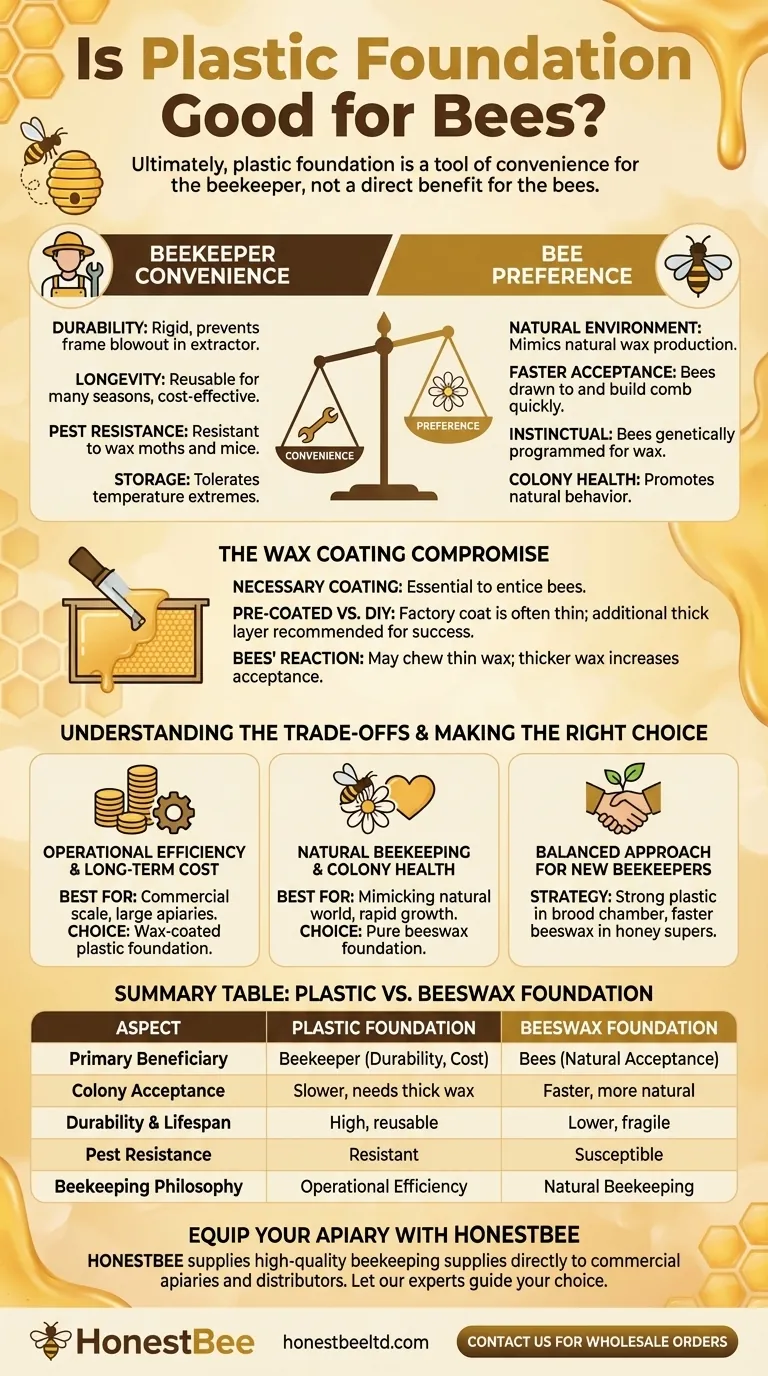
Related Products
- Food Grade Plastic bee Foundation for Bee Frames
- Beeswax Foundation Sheets Beehive Foundation for Wholesale
- Professional Frame Preparation: The HONESTBEE Electric Wire Embedder
- Manual Beeswax Comb Foundation Machine Wax Foundation Mill Embossing Machine
- JZBZ Type Wide Base Plastic Queen Cell Cups for Base Mounting and Queen Rearing
People Also Ask
- What are the pros and cons of using plastic foundation in beehives? A Guide for Modern Apiaries
- How can the acceptance of plastic hive foundation by bees be improved? Boost Acceptance with These Practical Wax Tips
- Under what circumstances will bees build comb on a pre-waxed plastic foundation? Tips for Successful Comb Construction
- What are the two ends of the spectrum in terms of frame and foundation choices? Plastic Efficiency vs. Natural Freedom
- What are the mechanical and acoustic characteristics of a one-piece plastic frame and foundation? Strength vs. Sound
- Why are preassembled plastic frames and foundation competitive in colony reconstruction? Boost Commercial Efficiency
- What are the pros and cons of using plastic foundation? Balance Durability and Bee Acceptance
- Why have many beekeepers migrated from wooden frames to plastic frames? Boost Durability & Efficiency






